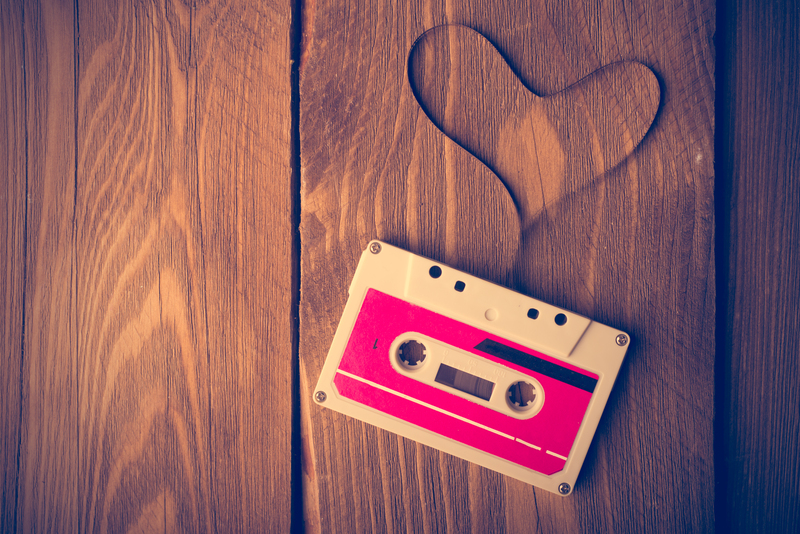Turn Old Into New: Encouraging Recycling Awareness in Kids
In today's world, recycling awareness in kids has never been more vital. Teaching our children from a young age to respect the environment and reuse items can lead to lifelong eco-friendly habits. Turning old into new isn't just about saving resources--it's about inspiring creativity, responsibility, and a sense of accomplishment in young minds. This comprehensive guide explores effective strategies, engaging activities, and educational resources to help parents and educators make recycling a natural part of children's lives.
Why Fostering Recycling Awareness in Children Matters
Environmental issues are more urgent than ever. From overflowing landfills to the growing problem of plastic pollution, our planet needs new generations to take action. Instilling a recycling mindset in kids goes beyond simple sorting of waste--it means teaching children the value of resources, creativity, and community action. Here's why starting young is essential:
- Habit Formation: Children are more likely to carry eco-friendly habits into adulthood if started early.
- Critical Thinking: Engaging in recycling projects encourages kids to think about how items can be reused or repurposed.
- Environmental Impact: Each recycled item reduces waste and conserves natural resources.
- Personal Responsibility: Kids feel empowered to make a difference in their surroundings.
- Community Leadership: Youngsters who understand recycling can influence peers and even adults around them.
Understanding How Recycling Works
Before teaching kids to recycle, it's important for them to understand the recycling process. Explain to them that not everything goes in the trash; many materials can be given new life. For example:
- Paper can be recycled into newspapers or tissues.
- Plastic bottles can become clothing, toys, or even furniture.
- Metals like aluminum cans are melted down and reused in cars or bikes.
Sorting recyclables is the first step. Teaching kids which materials are recyclable in their community sets the foundation for effective recycling habits.

Creative Ways to Make Recycling Fun and Engaging
Fun Recycling Crafts for Kids
One of the most enjoyable ways to encourage recycling awareness in children is by transforming "trash" into treasures. Upcycling, or the process of giving old items new life, sparks imagination and turns eco-education into play. Here are some wonderful project ideas:
- Bird Feeders from Plastic Bottles: Clean and decorate old plastic bottles, cut openings, and fill them with birdseed.
- Magazine Collages: Use pages from old magazines to create colorful art or greeting cards.
- Tin Can Planters: Paint and decorate used cans to make unique plant pots for herbs or flowers.
- Cardboard Castles: Save sturdy boxes and let kids create castles, houses, or even rocket ships.
- Musical Instruments: Make drums from oatmeal containers or maracas from used water bottles filled with beans.
Every project is a lesson in how to turn old into new. Beyond environmental impact, these crafts encourage problem-solving, teamwork, and motor skills.
Gamifying Recycling At Home
Kids respond enthusiastically to games and challenges. Transform your recycle education for children by introducing fun competitions:
- Sorting Relay: Set up bins for different materials and let kids race to sort items correctly.
- Eco-Scavenger Hunt: Make a list of recyclable items for children to find around the house.
- Points for Picks: Award points for each day kids remember to sort the recycling, rinse containers, or repurpose something.
These activities not only reinforce recycling habits but also make the process enjoyable and memorable.
Storytelling and Books That Inspire Green Habits
Children learn well through stories. Sharing books and stories about recycling and caring for the planet reinforces important lessons. Some recommended titles include:
- The Adventures of a Plastic Bottle by Alison Inches - follows a bottle's journey through the recycling process.
- Why Should I Recycle? by Jen Green - a simple introduction to the concepts of reducing, reusing, and recycling.
- Michael Recycle by Ellie Bethel - an engaging superhero tale that encourages taking action!
For younger children, make up your own stories using household items as characters--imagination is the best educator.
Practical Recycling Education Strategies at Home and School
Setting Up a Home Recycling Station
A child-friendly recycling station puts the whole family on the same page. Make recycling bins clearly labeled and accessible for kids. Use colorful signs or images for different materials, so even the youngest children can participate.
- Easy Access: Place bins in the kitchen, playroom, or garage where most waste is generated.
- Visual Reminders: Post simple guides showing what is and isn't recyclable.
- Include All Ages: Even toddlers can learn to carry paper to the right bin or flatten boxes.
Integrating Recycling into School Curriculums
Schools are ideal environments for broad recycling awareness in kids. Teachers and school staff can:
- Start a classroom recycling challenge--track who brings in the most recyclables.
- Host upcycling days where students create useful objects from old materials.
- Incorporate recycling themes into science, art, and literature lessons for a multidisciplinary approach.
- Help kids start a school composting project for food waste.
- Invite guest speakers or organize virtual field trips to local recycling centers.
The Role of Digital Tools and Apps
Modern technology offers engaging ways to boost eco-friendly habits in children. Explore these options:
- Recycle-themed games: Apps like 'Recycle Hero' or 'Sorting Trash' make waste sorting fun and challenging.
- Interactive videos: Platforms such as YouTube feature short educational clips on recycling for all ages.
- Virtual tours: Many recycling facilities now offer online tours, showing real-world impacts of their efforts.
Using interactive tools, children can learn more deeply, ask questions, and get instant feedback, making recycling education more effective.
How to Instill Lasting Environmental Values
Modeling Green Behaviors
Children mimic what they see. If parents, teachers, and caretakers regularly turn old into new and discuss recycling, children are more likely to follow suit. Demonstrate:
- Refusing single-use plastics and discussing alternatives together.
- Purchasing recycled products and explaining their origin.
- Repairing or donating items before throwing them away.
Actions speak louder than words! Let your behaviors inspire your kids' choices at home, at school, and beyond.
Celebrating Green Achievements
Positive reinforcement encourages repeated behaviors. Celebrate children's recycling successes with:
- Stickers or certificates: For completing recycling challenges.
- Display their upcycled creations: Proudly show off crafts and inventions made from reused items.
- Family eco-days: Plan a special outing as a reward for a month of great recycling.
These simple rewards reinforce the idea that eco-friendly actions are valued and appreciated.
Connecting Kids with Nature
Meaningful environmental awareness stems from a connection with nature. Take children on nature walks, organize park clean-ups, or start a backyard compost pile. The more children see, feel, and understand the beauty of our planet, the more motivated they become to protect it through recycling and upcycling.
Eco-Friendly Habits Beyond Recycling
While recycling is crucial, it is only one piece of the sustainability puzzle. Teach children the other "R's":
- Reduce: Buy less and choose durable items over disposable ones.
- Reuse: Find new uses for containers, bags, and clothing.
- Refuse: Say no to unnecessary packaging and single-use products.
- Repair: Mend broken toys or clothes instead of discarding them.
By understanding and applying all these principles, kids learn holistic approaches to sustainability and become well-rounded environmental stewards.

Involving the Community: Taking the Message Beyond Home
Recycling Awareness Campaigns for Kids
Get involved beyond the home or classroom:
- Host neighborhood clean-up events: Let children invite friends and neighbors for a fun, eco-friendly day.
- Organize recycling drives: Collect plastics, electronics, or batteries to deliver to proper recycling centers.
- Partner with local businesses: Encourage shops or cafes to display children's artwork made from recycled materials.
- Share success stories: Let kids present their projects at community events or online, motivating others to replicate their efforts.
These initiatives give children a real sense of accomplishment and demonstrate the power of collective eco-friendly action.
Conclusion: Build a Future of Conscious, Creative Kids
Encouraging recycling awareness in kids is about more than just reducing waste. It's an invitation to think, create, and care--turning old into new, not only with objects but with attitudes and habits. By making recycling educational, hands-on, and fun, we empower children to become lifelong protectors of the environment. Whether through crafts, games, or community action, every small step feeds into a larger movement towards a cleaner, greener world.
Let us inspire the next generation--one thoughtfully recycled can, bottle, or box at a time. After all, the planet belongs to them as much as it does to us.
Start today and watch your children proudly lead the way in turning old into new!
Frequently Asked Questions about Kids and Recycling
-
What age should kids start learning about recycling?
It's never too early! Toddlers can help sort, and preschoolers can engage in crafts and games that teach recycling principles. -
How can parents make recycling a daily habit for kids?
Consistency is key: keep bins visible, set weekly chores, and turn sorting recyclables into a family routine. -
Are there any dangers when doing recycling crafts?
Always supervise children, especially when using scissors or sharp objects. Stick to non-toxic materials and age-appropriate tools. -
Can recycling lessons really make a long-term impact?
Absolutely! Kids who grow up recycling develop strong environmental values and can positively influence their peers and families.
Is your family ready to turn old into new and foster environmental consciousness in your kids? Start with small changes and creative projects today for a brighter, greener tomorrow!